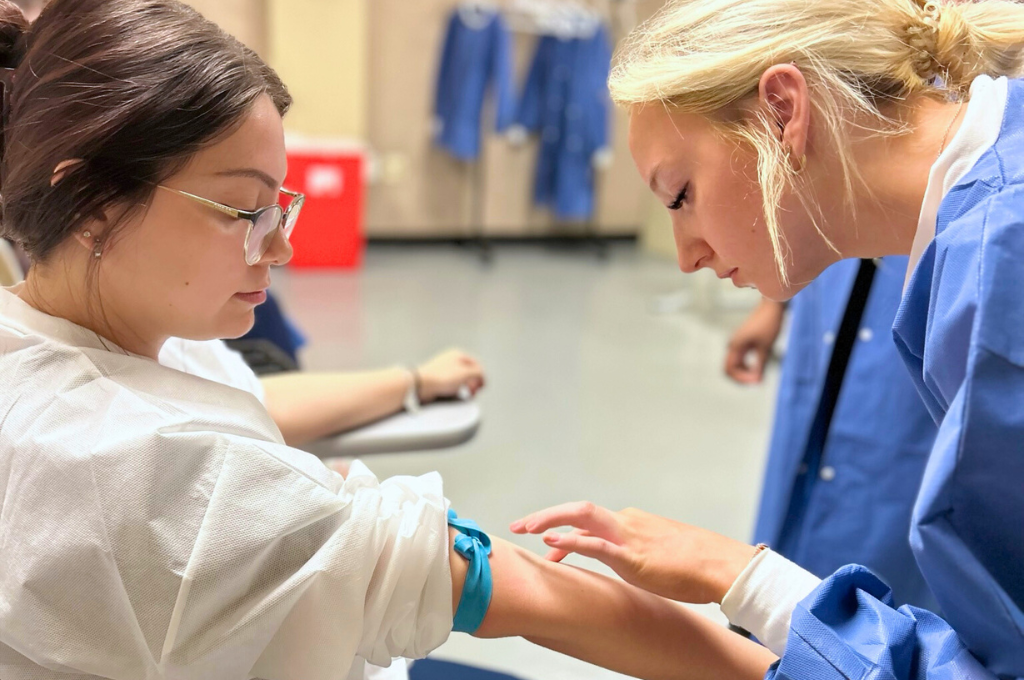Infection Control In Phlebotomy Needle Handling
Phlebotomy, the practice of drawing blood from patients for medical testing, is a crucial procedure in healthcare settings. Phlebotomists play a key role in the healthcare team, as accurate blood samples are vital for diagnosing and treating patients. However, the handling of needles in phlebotomy poses significant infection control risks if not done properly. In this blog post, we will discuss the importance of infection control in phlebotomy needle handling and provide useful tips for phlebotomists to ensure the safety of both themselves and their patients.
Techniques In Phlebotomy Needle Insertion
Phlebotomy is a crucial part of healthcare where blood is drawn from a patient for various diagnostic tests and medical procedures. One of the key skills in phlebotomy is the proper insertion of a needle into a patient's vein. In this article, we will discuss the techniques involved in phlebotomy needle insertion.
Appropriate Phlebotomy Needle Selection
Phlebotomy, the practice of drawing blood from patients for various medical tests and procedures, is an essential part of healthcare. When performing a phlebotomy procedure, one of the most important considerations is selecting the appropriate needle for the job. Choosing the right needle can make the procedure more efficient, less painful for the patient, and reduce the risk of complications. In this blog post, we will discuss the factors to consider when selecting a phlebotomy needle and provide some tips for making the best choice.
Complications In Phlebotomy Needle Handling
Phlebotomy, the practice of drawing blood from patients for various medical tests and procedures, is a crucial part of healthcare. However, like any medical procedure, phlebotomy comes with its own set of potential complications, particularly when it comes to needle handling. In this article, we will explore some of the common complications that can arise during phlebotomy due to improper needle handling, as well as ways to prevent these issues from occurring.
Best Practices In Phlebotomy Needle Handling
Phlebotomy is a crucial skill in the healthcare industry, involving the drawing of blood for various purposes such as testing, transfusions, or donations. One of the most important aspects of phlebotomy is needle handling, as it directly affects the safety and well-being of both the patient and the phlebotomist. In this article, we will discuss the best practices in phlebotomy needle handling to ensure a safe and efficient blood collection process.
Training For Phlebotomy Needle Handling
Are you interested in pursuing a career in healthcare that involves drawing blood from patients for various medical tests and procedures? If so, then training for phlebotomy needle handling is an essential step in your journey towards becoming a certified phlebotomist. In this article, we will discuss the importance of proper training in phlebotomy needle handling, the key skills you will acquire during your training, and how to find reputable training programs in your area.
Tips For Effective Phlebotomy Needle Usage
Phlebotomy is the process of drawing blood from a patient for various purposes such as laboratory testing, blood donation, or medical treatments. A crucial part of the phlebotomy process is the use of a phlebotomy needle. Phlebotomy needles come in a variety of sizes and types, each designed for specific purposes. In this article, we will discuss some tips for effective phlebotomy needle usage.
Safety Measures In Phlebotomy Needle Handling
Phlebotomy is a vital procedure in the healthcare field, involving the collection of blood samples for testing and diagnosis. While it is a routine task for healthcare professionals, there are numerous risks associated with needle handling that can pose serious health hazards if proper safety measures are not taken. In this article, we will discuss the importance of following safety protocols in phlebotomy needle handling to protect both the healthcare worker and the patient.
Needlestick Injuries In Phlebotomy
Phlebotomy is an essential aspect of healthcare, involving the collection of blood samples for various tests and procedures. While phlebotomists play a crucial role in patient care, they are also at risk of needlestick injuries. These injuries can have serious consequences for both the phlebotomist and the patient. In this article, we will explore the causes of needlestick injuries in phlebotomy, the potential risks associated with these injuries, and strategies for preventing them.
Phlebotomy Needle Disposal Procedures
Phlebotomy is a crucial part of healthcare that involves drawing blood from patients for various reasons such as diagnostic testing, blood donation, and medical procedures. While phlebotomy is a routine procedure, it is important to remember that proper disposal of phlebotomy needles and other sharps is essential to prevent injuries and the spread of infections. In this article, we will discuss the importance of phlebotomy needle disposal procedures and provide some guidelines on how to safely dispose of needles and other sharps.
Phlebotomy Needle Handling Skills
Phlebotomy is a critical skill in the medical field that involves drawing blood from patients for various laboratory tests and procedures. One of the most important aspects of phlebotomy is needle handling skills, as this can greatly impact the patient's experience and the accuracy of the blood draw. In this blog post, we will discuss the importance of needle handling skills in phlebotomy and provide tips on how to improve these skills.
Cultural Diversity And Blood Collection
In our increasingly globalized world, cultural diversity plays a crucial role in every aspect of society, including healthcare. One area where cultural diversity is particularly important to consider is in blood collection. The process of collecting blood from donors is not only a medical procedure but also a cultural one, as beliefs and traditions from different cultures can impact individuals' willingness to donate blood and the way in which blood collection is carried out. In this blog post, we will explore the significance of cultural diversity in blood collection and how healthcare providers can effectively navigate cultural differences to ensure the safety and well-being of all patients.












